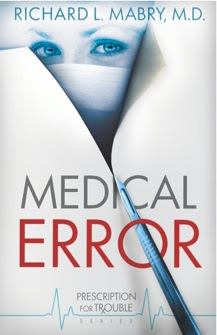Writing a novel that involves one’s profession is a definite two-edged sword. On the one hand, most people are interested in sports or medicine or law (just to name three examples) so there’s an automatic reader attraction from the subject matter alone. On the other hand, it’s easy for an author to get bogged down in the jargon of his or her profession and completely lose the reader.
I love baseball. I played some semi-pro ball, and coached it for decades. But suppose I wrote a novel about baseball (I have—it’s just not published…yet) and included this dialogue. Would it be meaningful to you?
Locked up in the final frame. Runners at the corners. Two down. Full count. Here’s the pitch, and Young lofts a Texas leaguer to shallow right. Close play at the plate. Borbon executes a perfect fade-away slide. Rangers win.
Really held your attention didn’t it? Well, actually, it did mine, but I understand the language. If you didn’t, you were lost.
I really enjoy reading the legal thrillers of John Grisham. But suppose he wrote a scene like this:
“I’m filing a writ of mandamus and requesting a habeas corpus hearing under section 337, section a, sub paragraph ii of the judicial code.”
The judge rapped his gavel. “The bailiff will release the prisoner.”
Heady stuff, huh? No? You didn’t understand it? Neither did I. And at that point I’d probably put the book aside for another day.
Medical writers face the same problem. The trick is to use the language and terms doctors might ordinarily use, but slip in an explanation along the way, preferably without being too obvious about it.
Here’s an example from my second novel, Medical Error:
“It’s not blood loss,” Jenkins said. “He’s having an anaphylactic reaction. Could be the blood. Did you give him an antibiotic? Any other meds?”
Anna’s mind was already churning, flipping through mental index cards. Anaphylaxis—a massive allergic reaction, when airways closed off and the heart struggled to pump blood. Death could come quickly. Treatment had to be immediate and aggressive.
It’s possible to use terms that are totally foreign to the lay reader. They may even be open for misinterpretation. Here’s an example of that, also from Medical Error:
He’d see her at M&M. Not the candy. Anna wished it were. No, this was Morbidity and Mortality Conference, the meeting each month when the staff discussed their patients who had suffered adverse consequences from treatment. “Morbidity” sounded so much better than “something went wrong.” And “mortality” was more acceptable than “they died.” But when it came to assigning blame, there was no sugar coating her.
So the next time you read a novel written by someone familiar with a particular field, see how good a job they’ve done in not losing you in technical terms. If you’re drawn in by the setting of the novel, whether operating room, courtroom, or football field, but don’t have any trouble understanding what’s going on, silently tip your hat to the author. They’ve done their job.
*******************************************************************************
*******************************************************************************


















I have definitely read books where they used technical jargon that pulled me out of the story. A good reminder to find a balance in our writing. Can't wait for the new book.
ReplyDeleteJordyn, I appreciate this opportunity to share with your readers.
ReplyDeleteThanks, Elaine, for your comment.
I was a chemist and I'm still a nerd and like a healthy dose of jargon, but it's definitely a skill to "translate" it for wide appeal.
ReplyDeleteI'm a big football fan and enjoy slipping a little sports talk in when I write even though my audience is predominantly female. :-)
It's always good to get our horizons broadened.